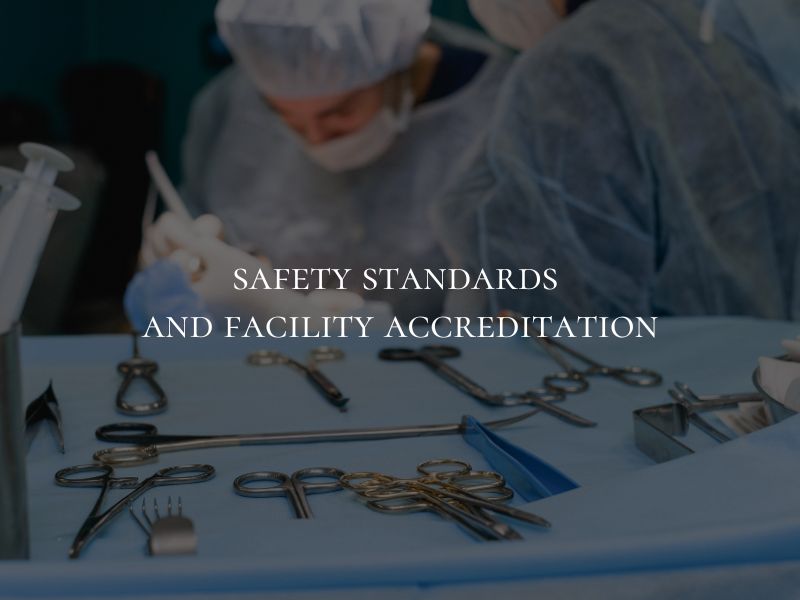
Finding the right plastic surgeon is one of the most important steps you can take when considering cosmetic surgery. Knowing how to find a good plastic surgeon ensures that the quality of your care remains a top priority, whether you’re pursuing breast augmentation, liposuction, or a tummy tuck.
But, how do you find a good plastic surgeon? It starts with understanding what qualifications to look for, and knowing how to evaluate whether a provider is truly the right fit for your needs.
What Makes a Plastic Surgeon Qualified?
Choosing a plastic surgeon goes far beyond a quick Google search. Not every physician advertising plastic surgery services is trained or certified in the specialty. To protect your health and investment, start by checking for board certification from the American Board of Plastic Surgery (ABPS).
Board Certification and Why It Matters
A board-certified plastic surgeon has been through intense training in plastic surgery procedures, passed both written and oral exams, and adheres to ongoing rigorous standards set by the American Board of Plastic Surgery, which the American Board of Medical Specialties recognizes.
This certification is considered the gold standard in the field, and gives you a guarantee the surgeon has met the highest level of competency. ASPS comprises more than 92 percent of all board-certified plastic surgeons in the United States.
Medical Education and Specialties
Be sure to check the doctor’s full medical history. This includes where they completed their training, how long they’ve been in practice, and whether they specialize in specific procedures (like abdominoplasty or tummy tuck surgery).
Some doctors might offer cosmetic surgery without being trained in plastic surgery, which is a different specialty altogether. Always confirm their board certification with the state medical board and the ABPS to be sure.
Evaluating Experience and Results
Once you’ve verified qualifications, it’s time to evaluate how well the doctor and their practice can meet your specific and personal expectations. These vary on a case-by-case basis; there’s no one-size-fits-all.
Patient Reviews and Before/After Photos
Always take the time to through verified patient reviews, especially from those who have had the same procedure you’re considering. Honest feedback can tell you a lot about recovery, the surgeon’s bedside manner, and the long-term outcomes of the operation.
It’s good practice to ask to see before-and-after photos of previous patients, especially for tummy tuck or abdominoplasty procedures. A good surgeon should be transparent about their work and happy to share examples, so if they hesitate, know that it’s not a great sign.
Consultation Process
Next, it’s time to schedule a consultation to ask questions and express any concerns. A qualified surgeon will walk you through the treatment plan to explain the risks and benefits and help you feel comfortable with the process.
Don’t hesitate to compare multiple surgeons. A truly good plastic surgeon welcomes second opinions and prioritizes your safety and satisfaction over rushing a procedure. If they seem pushy, consider that a sign that they might not be as professional as they appear.
Safety Standards and Facility Accreditation
Where a doctor operates is just as important as the individual themselves. A reputable plastic surgeon performs procedures in accredited surgical facilities that meet hospital-level standards.
Ask if the facility is accredited by verified organizations, and confirm whether a licensed anesthesiologist will be present during your surgery. These details matter for ensuring that you are safe during and after the procedure.
Red Flags to Avoid
Not all providers operate at the same ethical or professional level. Be cautious of:
- Surgeons without being board certified
- Pressure to book procedures immediately
- Lack of consultation or rushed appointments
- No clear explanation of risks or healing expectations
- Limited or no before-and-after documentation
FAQs: How to Find A Good Plastic Surgeon
What is the difference between a plastic surgeon and a cosmetic surgeon?
Plastic surgeons are trained in both reconstructive and cosmetic surgery, and are typically board-certified. Cosmetic surgeons may not have formal plastic surgery education and are often certified in other specialties. It’s important to determine what is best for you specific, situational needs.
What should I ask during a plastic surgery consultation?
Any question that comes to mind is absolutely fair game. Feel free to ask about their experience (especially whether or not the doctor is board-certified), how many times they’ve performed the specific procedure, what the healing process is like, and what results to expect. Members of their team should be happy to share this information with you.
Are all plastic surgery operations done in hospitals?
Not always. Many are performed in accredited surgical centers, but these facilities must meet high safety standards and are fully staffed with certified personnel. Take time to compare cosmetic surgeons not just for their credentials, but also the quality of their operating centers.
What does the recovery process involve?
Your healing timeline varies by procedure, but you should receive detailed post-operative instructions and follow-up care from your surgeon before you undergo the treatment. Members of the facility’s staff should provide helpful guidance on when to resume normal activities.
Ready to Book Your Plastic Surgery Consultation?
At Diehl Plastic Surgery, we live and breathe the standards that we preach. Dr. Lisa Diehl is a board-certified plastic surgeon who meets the highest safety and patient care standards. No matter what treatment you’re interested in receiving, the team at our practice is here to help you feel confident every step of the way.
If you’re interested in a personalized consultation, we’d love to discuss your goals. Contact us today to schedule an appointment and learn more about how we can help you achieve your dream body!





